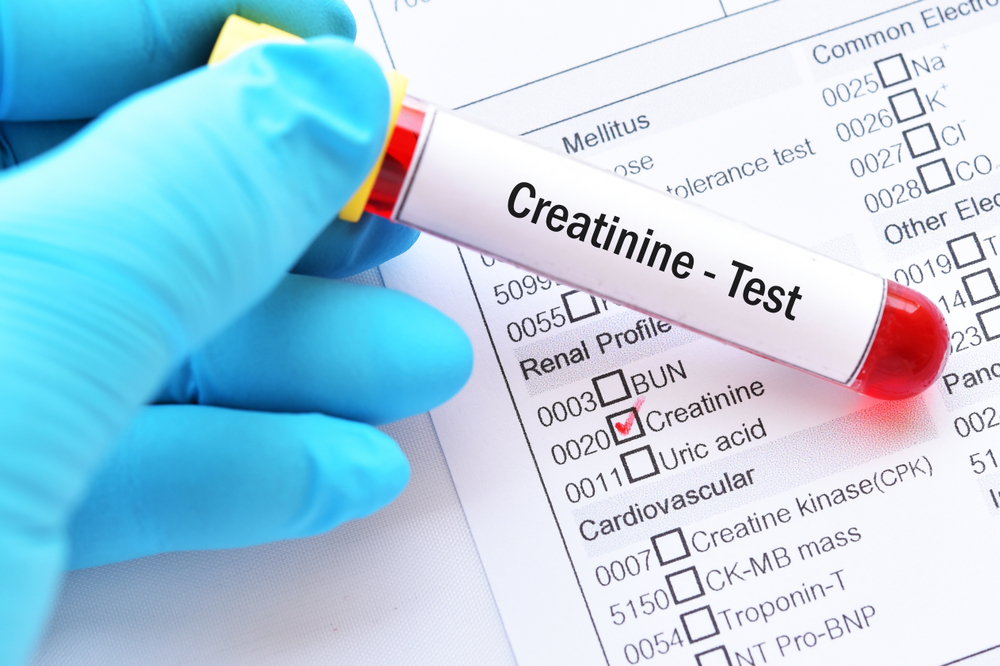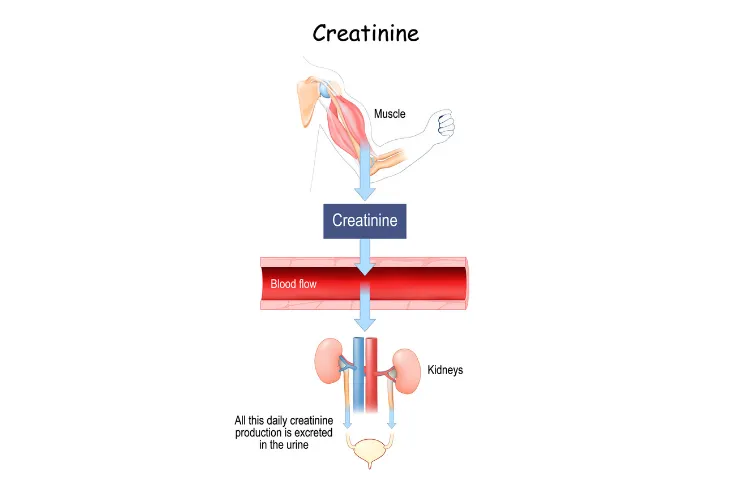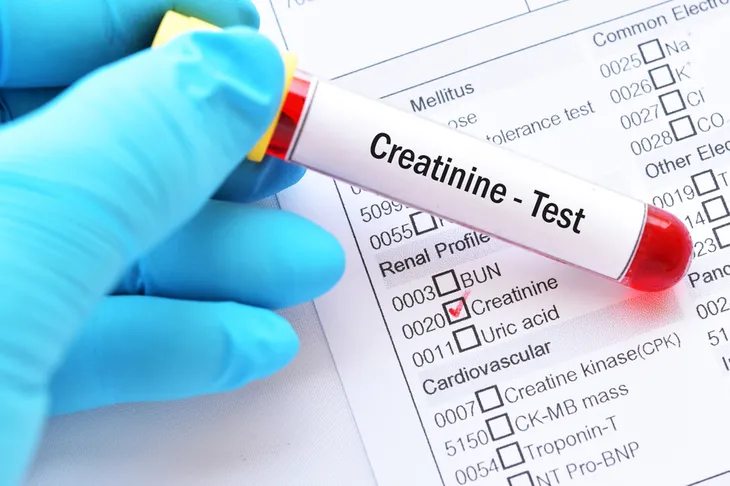It’s remarkable how much you can learn about your health with a simple blood test. The many levels recorded in your blood can advise doctors when you require lifestyle changes or treatment, potentially even saving your life. One vital thing that a blood test can measure is your creatinine levels.
It turns out the level of creatinine in your body is directly linked to certain health scares. The ideal level isn’t the same for everyone across the board, which is why you should be aware of the creatinine goal based on your age. Let’s take a closer look at what creatinine is, how it impacts your body, and what is considered normal levels for every age.
What Is Creatinine?
Your body is full of different substances that work to keep you alive and moving. On the other hand, there are different wastes and toxins your body has to flush out to keep you healthy. One of those things is creatinine.
Creatinine is a waste product that forms when creatinine in the muscle breaks down. It’s your kidneys’ job to eliminate creatinine from the body. Healthline explains how nephrons in your kidneys filter waste products out of the blood, store it in the bladder, and then leave your body through urination.
The Importance of Normal Creatinine Levels
It’s important for your kidneys to properly flush creatinine out of your system. If that stops happening, then your kidneys may be damaged and not work properly. The only way to know how much creatinine there is in your body is with a blood test.
According to Healthline, the level of creatinine tells doctors how well the kidneys are functioning. If the levels are high, it’s a signal that something is wrong. These results are typically done during routine medical exams that also look for other potential health problems.
Normal Creatinine Levels
So, how much creatinine is considered too much for your blood and body? It depends on several factors. Your age and sex are the two major identifiers. Your overall health may also be considered by doctors when checking for levels.
In general, creatinine levels are lower in children and adolescents under the age of 18. Here’s what your levels should be based on your age.
- 0.9 to 1.3-milligrams per decilitre (mg/dL) for adult males
- 0.6 to 1.1-mg/dL for adult females
- 0.5 to 1.0-mg/dL for children ages 3 to 18-years
- 0.3 to 0.7-mg/dL for children younger than age 3
What Impacts Creatinine Levels?
There are various reasons why your body may endure higher than normal creatinine levels. One of those reasons is taking certain medications. Medical News Today says this can include some antibiotics and nonsteroidal anti-inflammatory drugs.
Some causes may even be a result of lifestyle choices. Other factors that can raise levels are:
- Creatine supplements
- High intake of protein and other dietary factors
- Strenuous exercise
- Impaired kidney function
- Low blood flow
- Dehydration
Diseases Impacting Creatinine Levels
Some people may be living with illnesses or conditions that cause the glomerulus to malfunction and not filter waste properly. When this happens, tests may show high levels of creatinine in the blood but low levels in urine samples.
The following diseases and health conditions may lead to raised creatinine levels:
- Tumors
- Pregnancy
- Diabetes
- Infections such as hepatitis B and C
- Systemic lupus erythematosus
- Cancer
Symptoms of Kidney Disease
If you’re experiencing symptoms related to kidney disease, then it’s time to get a blood test. It will test your creatinine levels and determine whether your symptoms are related to the kidney. While these symptoms could be related to other health problems, it’s still a good idea to get a blood test if they persist.
The following symptoms are linked to kidney disease:
- Frequent tiredness
- Swollen feet or ankles
- Poor appetite
- Puffiness around the eyes
- Dry, itchy skin
- Muscle cramps
- Frequent urination
- Painful urination
- Blood or protein in your urine
Risk Factors
Some individuals are more at risk of kidney disease than others. University of Rochester Medical Center says older adults are more at risk. There is a heightened risk for kidney disease if you’re African American, Hispanic, Asian, Pacifica Island, or American Indian. You may also develop kidney disease if you have:
- High blood pressure
- Diabetes
- Family history of kidney disease
How Are Creatinine Levels Tested?
To find out your creatinine levels, you’ll have to do a blood test. Medicine Plus says your blood is collected and sent to a lab for testing.
Some doctors may also request a sample of urine to be tested. In that case, you will have to collect all urine during a 24-hour period. To ensure results are accurate, you may be asked not to eat cooked meat for 24-hours before testing.
Lowering Creatinine Levels
If the cause behind your high creatinine levels is temporary or not serious, you may be able to lower levels naturally. You can start by not taking any supplements that contain creatine as an ingredient.
Healthline says that some people may use it for athletic purposes, but the lack of information on these types of supplements overall means it’s best to avoid them.
Adjust Your Diet
Another habit to kick is eating too much protein. Specifically, consuming large amounts of red meat. Healthline says to limit your protein intake and opt for vegetable-based alternatives. This is because the heat from cooking can cause the creatine in meat to produce more creatinine.
To fill the void of red meat in your life, try eating more fiber. There is some research showing that a high fiber diet may be beneficial to people with chronic kidney disease. You may see a reduction in creatinine levels, though more research still needs to be done to better understand this connection.
Other Ways to Lower Creatinine Levels
There are some more easy ways to lower creatinine levels for minor cases. This includes:
- Not smoking
- Limiting alcohol consumption
- Lowering your salt intake
- Avoid some over-the-counter painkillers
- Talking with your doctor about fluid intake
When to See a Doctor
If you’re experiencing symptoms of kidney disease, make sure to schedule a visit with a doctor. This is especially important if you carry one of the risk factors for elevated creatinine levels. Some people may be able to lower creatinine levels with some lifestyle changes, while others could require treatment for more serious conditions.
To stay ahead of symptoms, monitor your health, and make sure to visit the doctor for regular checkups. Healthline recommends getting routine blood work and physical therapy at least once per year. Hopefully, this can allow you to catch potential health risks before it escalates to severe stages.















